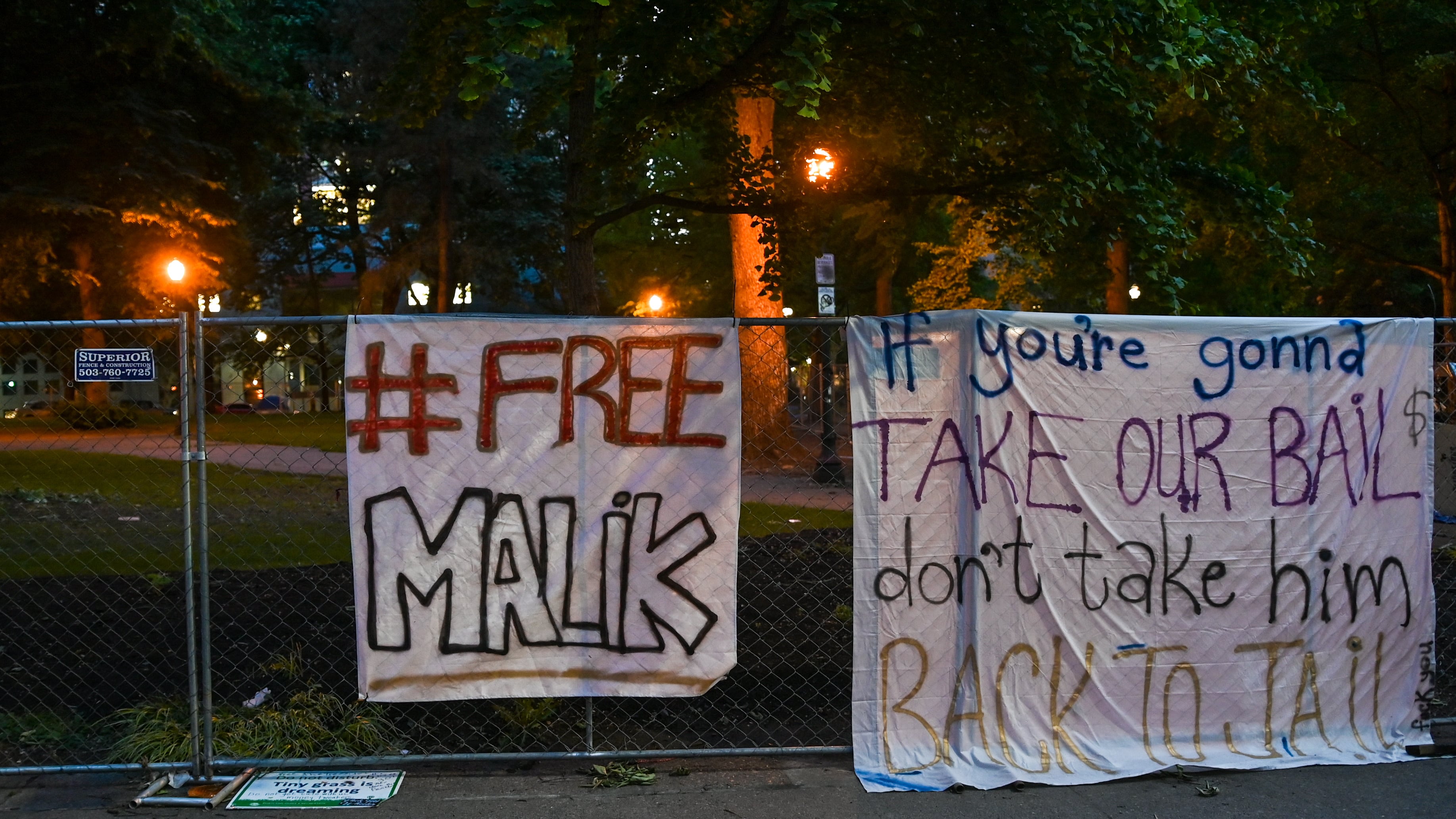An Indiana man accused of throwing a Molotov cocktail toward Portland police officers and handing out baseball bats during a protest has landed back in jail two days after his release.
On June 1, the U.S. Attorney’s Office for Oregon announced federal charges against 24-year-old Malik Muhammad for possession of unregistered destructive devices, engaging in civil disorder and obstructing law enforcement, and using explosives to commit a federal felony.
Days earlier, the Indianapolis man had been released from the Multnomah County Jail on May 26 after the Portland Freedom Fund posted $212,500—or 10%—of the $2.1 million bail, court records show.
Then on May 28, two days after his initial release, deputy district attorney Nathan Vasquez filed a motion arguing that Muhammad should remain in custody in part because he allegedly seeks out situations that allow him to engage in violent behavior.
“As he has shown time and time again, he will go to extreme lengths to exercise his extreme ideology, up to and including building fire bombs and attempting to murder police officers,” Vasquez wrote. “Mr. Muhammad has shown himself to be an incredibly dangerous person. As such, there is absolutely clear and convincing evidence that there is a risk of physical injury to members of the public by Mr. Muhammad while on release.”
Muhammad had been detained following a 28-count indictment handed down to county prosecutors in March for various charges including attempted aggravated murder and unlawful manufacture of a destructive device. Muhammad was then extradited from Indiana to Portland, where he had been detained since April 29, jail records show.
Multnomah County prosecutors allege that Muhammad committed various crimes during multiple Portland protests in 2020, including throwing Molotov cocktails toward police officers and handing out a “large amount” of baseball bats to members of the crowd at a Sept. 5 demonstration.
In Friday’s motion, Vasquez further outlined allegations against Muhammad: that, on at least two occasions, he “brought and lighted an explosive device” while being surrounded by a crowd; that he threw “fire bombs” toward other people on two occasions; that he brought a gun to a mass protest on Oct. 11; that he has “[actively] attempted to organize others to engage in violent acts; and that he allegedly gathered “multiple rifles and shotguns.”
Hours after Vasquez filed the motion, Oregon State Police arrested Muhammad and booked him back into the county jail—likely in connection with the federal charges, which appear to align closely with the allegations laid out by Multnomah County prosecutors.
As for the state charges, the DA’s office says it had intended to file its motion before Muhammad was released. “However, bail was posted prior to that motion being filed. Our position has not changed,” says Brent Weisberg, a spokesman for the DA.
On May 31, about 20 protesters gathered near the Multnomah County Justice Center to demonstrate against Muhammad’s arrest.
Members of the gathering hung large signs on the fence that surrounds Chapman Square. “If you’re gonna take our bail,” one sign said, “don’t take him back to jail.”
Others chanted “Free Malik!” And “Free Richard!” at the Justice Center to the accompaniment of a drummer. (”Richard” appears to be Richard Hernandez, 56, who was arrested for allegedly shattering windows at a federal courthouse and the Portland office of U.S. Immigration and Customs Enforcement.) The crowd stood in the intersection of Southwest Main Street and 3rd Avenue, just around the corner from where the Molotov cocktail exploded last September.
Police did not intervene and the assembly departed without incident.
Justin Yau contributed reporting to this story.

